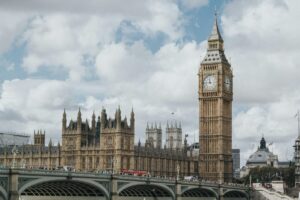The research, as part of abrdn’s bi-annual Savings Ladder Index, conducted by Opinium Research, suggests that the nation’s overall propensity to save and invest has improved by four percentage points between wave one (May 2024) and wave two (September 2024).
This is likely influenced by the change in Government, falling interest rates, and perhaps even a ‘use it or lose it’ approach ahead of any Autumn Budget tax changes.
Yet this figure masks a worrying intergenerational divide, with the increase in propensity to save and invest driven by young people aged 18-34, who have posted a double digit increase in confidence.
Confidence among 35-54 year olds, in contrast, has increased by just a few percentage points. For those aged 55 plus and the retired it has remained largely static and, in some cases, even reversed. This comes ahead of the Autumn Budget, with fears around pensions, CGT and IHT tax increases at fever pitch. It is also set against the backdrop of a more limited Winter Fuel allowance.
abrdn is therefore cautioning the Government against unveiling policies in the upcoming Budget that could both dampen this nascent appetite for saving and investing, and indeed penalise those who have saved and invested to build financial resilience.
Sarah Moody, Chief Corporate Affairs and Sustainability Officer, abrdn, said: “It’s hugely positive to see growing appetite for saving and investing, particularly amongst younger investors. This is a crucial step in shoring up people’s long-term financial resilience.
“But nor should we leave behind those who have carefully saved and invested over many years. We must now cultivate these green shoots of progress into a national culture of saving and investing for the long-term. We urge the Government to use the Budget as an opportunity to continue building on this positive trend rather than dampening nascent appetite for saving and investing by eroding the benefits of doing so.”
abrdn is calling on the Government to implement policy changes to increase the UK’s propensity to save and invest, including:
- Simplifying the UK’s overly complex Isa system
- Overhauling financial education in schools to ensure more people have access to financial education
- Scrapping stamp duty on UK shares and investment trusts
- Launching a national campaign to show the benefits of long-term investing
Paul Diggle, Chief Economist at abrdn, said: “The Government is walking a difficult tightrope. It needs to both raise taxes to finance planned increases in spending, while also maintaining and indeed enhancing the UK’s reputation as a place to invest and do business. These two aims could easily come into conflict, especially given how fragile the improvement in consumer confidence and people’s willingness to save and invest seems to be. For example, raising capital gains tax and changing the rules around pension contributions could work against boosting capital markets and channelling pensions money into productive areas. So any changes should be carefully considered.”
Savings Ladder Index in detail
Since May, abrdn’s proprietary Savings Ladder Index has been tracking how likely people are to start saving and investing more via a ‘Propensity to Save and Invest’ score.[2]
The latest wave of abrdn’s Savings Ladder Index reveals that:
- UK adults’ propensity to save has increased by +2 points to 55/100
- UK adults’ propensity to invest has increase by +3 points to 40/100
- UK adults’ economic outlook has increase by +6 points to 52/100
These scores are combined to create an overall propensity to save and invest score of 49/100 (+4 points since May). Full methodology for how the scores are calculated to be found further down.
Improved consumer confidence has been the main driver of people’s increased propensity to save and invest. Back in May, the economic picture and prospects for interest rates and inflation coming down were still unclear. Now, the outlook for these areas appears much more positive and the uncertainty of a General Election has passed.
In September, the percentage of people confident about:
- Their own financial situation – has increased from 32% to 38%
- UK interest rates coming down – has increased from 21% to 28%
- The performance of the UK stock market – has increased from 16% to 22%
- The performance of the UK economy overall – has increased from 17% to 19%
Their confidence chimes with the expectations of abrdn’s economists for the UK. Domestic growth has proven reasonably resilient and underlying inflation pressures are slowly fading. abrdn expects the Bank of England to cut its policy rate in November with further cuts in the following quarters until it reaches 3.75% by the end of 2025.
However, given constrained government finances, abrdn’s economists also expect several tax increases in the upcoming Budget. These may include an increase in capital gains tax and reductions in relief on pension contributions – both of which risk reducing appetite for saving and investing.
Propensity to save and invest scores are made up of:
- Propensity to save score
Measures understanding of savings products, likelihood to increase savings in the next six months, likelihood to take out new cash savings products in next six months, and confidence in taking out and managing savings products.
- Propensity to invest score
Measures understanding of investment product, likelihood to increase investing in the next six months, likelihood to take out new investment products in the next six months, confidence in taking out and managing investment products, how much of a priority long-term investing is, enjoyment of reading about investments, risk tolerance.
- Economic Outlook score Measures confidence in the UK economy, confidence in the UK stock market, and how confident they are about their personal financial situation.
Respondents with a strong propensity to save and invest were allocated a score of 100/100. At the other end of the scale, where responses were seen as unlikely to save and invest, respondents were allocated a score of 0/100. The economic outlook pillar also gave a 100/100 for a positive outlook, and 0/100 for negative.
Left out in the cold:
Almost one in five (17%) UK adults have no savings and no investments at all, equating to 9.2m people without any security blanket. Those with lower incomes are more likely to hold no savings and no investments than those with higher incomes. However, financial literacy also has a big role to play. People with a low personal income (<£30k) with a poor level of financial literacy are almost twice as likely to hold no savings and no investments than those with the same income but with a good level of financial literacy (27% vs 15%).
Sarah Moody, Chief Corporate Affairs and Sustainability Officer, abrdn, said: “It is extremely difficult to unpick the impact poor financial literacy has on people’s economic outcomes from other, related factors – such as their socioeconomic background. However, our research found that those with poor financial literacy are worse off, even when earnings are taken into account. Financial education in schools, done well, could be a key lever to help build the nation’s long-term financial resilience and improve social mobility. It’s often said that ‘money makes money’, but financial education is key to keeping, and growing it.”















